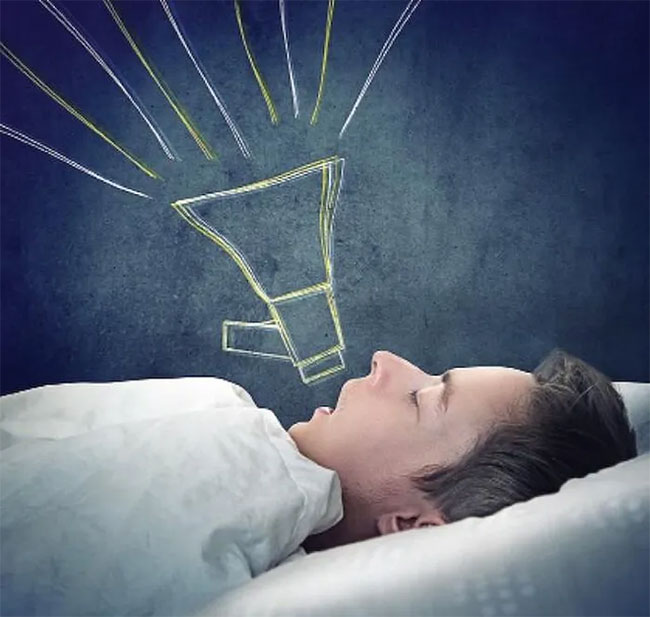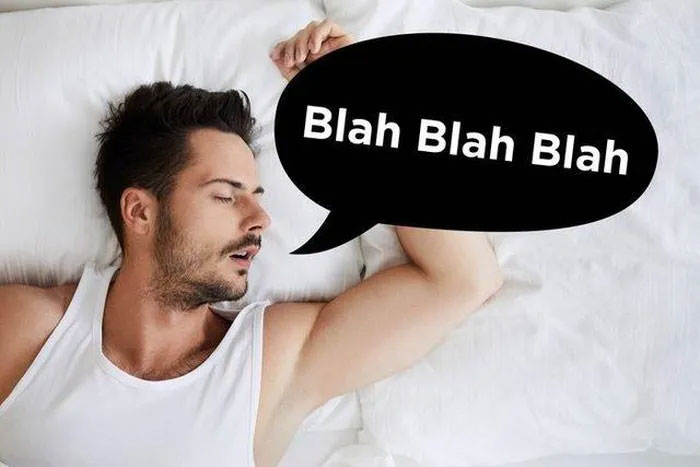To study the phenomenon of sleep talking, the research team recorded nearly 900 utterances from about 230 adults sleeping over 1-2 consecutive nights.
Are you worried that while you sleep, you might say things that you would regret upon waking? This could be a valid concern: “According to a study from France, people’s mumbling in their sleep tends to be more negative when they wake up.”
In this study, scientists found that individuals who talk in their sleep are four times more likely to say “No!” than when they are awake. Additionally, they tend to swear significantly more compared to when they are conscious.

Sleep talkers are four times more likely to say “No!” than when they are awake. (Image source: Sleep Savvy)
To investigate the phenomenon of sleep talking, the research team recorded nearly 900 utterances from approximately 230 adults over 1-2 consecutive nights. The authors noted that, since sleep talking is a relatively rare phenomenon, they selected candidates for the study who had certain sleep disorders.
The recorded utterances were analyzed in terms of length, pauses, tone, politeness level, and tendency to use profanity. These results were then compared with archived data from French-speaking language banks to determine how the utterances made during sleep were similar in content and form to those spoken during the day.
The research team discovered that a majority (59%) of sleep talking at night was incomprehensible, or not clearly articulated; for example, participants might mumble, whisper, or laugh.
However, among the “meaningful” utterances, a surprising number were negative or profane: 24% contained negative content, 22% included profanity, and nearly 10% contained the word “No.”
Why do people tend to sleep talk about negative things? According to the study, this finding may reflect what is known as the “Threat Simulation Theory” (one of the explanations for the function of dreams).
This theory posits that dreams are a form of simulation that helps to “train” individuals about potential threats while they are awake.

Even while sleep talking, individuals tend to maintain grammatical accuracy and adhere to daily speech patterns. (Illustrative image: Reader’s Digest).
Dr. Isabelle Arnulf – the lead author of the study and a neurology expert at Pitié-Salpêtrière Hospital in Paris, stated that although the participants were French, this finding does not necessarily mean that French people are ruder than individuals from other nationalities.
Furthermore, while the content of the candidates’ sleep talk may be more offensive or profane, it is noteworthy that they still maintained grammatical structure and followed daily speech patterns, such as pause rules and the typical number of words used in a certain command.
Dr. Carl Bazil, director of the Sleep and Epilepsy Division at Columbia University in New York City, commented that this finding indicates that sleep talking is “more complex than we thought”, and it also shows that functional areas of the brain remain active during all stages of sleep.
The fact that the phrases spoken during sleep maintain grammatical accuracy compared to when individuals are awake suggests that the nervous system responsible for speech is still functioning as it does when a person is awake. Additionally, the mumbling indicates that there are still some motor inhibitions, meaning the brain is preventing muscle movements while sleeping.
Ultimately, the study reveals the complex activity of the brain, which may help scientists gain deeper insights into the purpose and progression of dreams.


















































